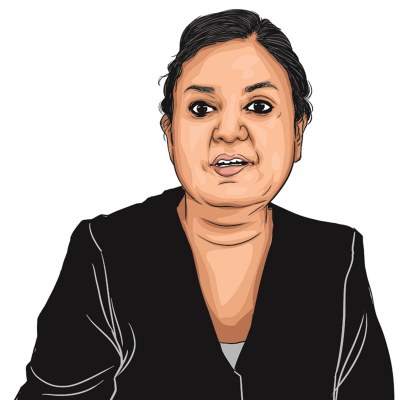Opinion IVF debt, insecurity and judgment: The one-sided costs that women bear for ‘fertility’
Infertility isn’t only because women have poor health and hectic lifestyles; men are going through the same, minus the guilt. Men are always assumed to be virile, and women are automatically assumed to be infertile
 Look up any achiever's name -- CEO, founder, business leader, inventor, sportswoman, banker, investor -- and they all come with the suffix, “also a mother to so and so.”
Look up any achiever's name -- CEO, founder, business leader, inventor, sportswoman, banker, investor -- and they all come with the suffix, “also a mother to so and so.” As the United Nations Population Fund’s (UNFPA) State of World Population report for 2025 shows a significant decline in India’s fertility rate — dropping to 1.9 births per woman — the guilt of a childless future has been quietly passed on to the woman. Most conversations ever since have centred on what’s going wrong in the woman’s body, her hormones, her eggs, her infertility or why she can’t summon up enough resilience to ensure no societal expectation is unmet. The fact is, no matter how much we commit to parity and equity, motherhood continues to be the only recognition of a woman’s completeness.
Look up any achiever’s name — CEO, founder, business leader, inventor, sportswoman, banker, investor — and they all come with the suffix, “also a mother to so and so.” As if every accomplishment falls short if one didn’t pass the motherhood test. Great, if she did it despite it. Ambitious and careerist, if she did it without it. A childless woman is asked every day why she “couldn’t have” a baby when it could well be that she “didn’t want” one in the first place.
This allusion to motherhood as a societal duty rather than individual choice is the reason that successful women are queuing up at IVF clinics and egg freezing centres, even willing to take loans to continue their treatments. Many of them are trapped in what is being called “IVF debt”. The procedure itself has a success rate of 40 per cent per cycle if you are under 35, but they are still willing to bet on it. Nobody even talks about the physical pain involved. In our cultural narrative, women, after all, are expected to be selfless and sacrificing when it comes to continuing the bloodline in a tactical transference of responsibility.
Here are some hard facts. Infertility isn’t only because women have poor health and hectic lifestyles; men are going through the same, minus the guilt. Men are always assumed to be virile, and women are automatically assumed to be infertile. Men are as enthusiastic about fatherhood as women are about motherhood. Yet there is no prejudice against a childless man. That is reserved rather harshly for women.
Young women are far more informed and aware of the toll their work and home environment is taking on them, and are keen to freeze their eggs. But is it cost-effective enough? With costs ranging between ₹1,50,000 to ₹2,50,000 per cycle and doctors telling them it’s best to freeze their eggs by 29, a young woman has to battle a dilemma. Should she still gamble on natural conception, or should she, with no savings in a career that has just begun, borrow the money for the greater good? Assisted reproductive technologies may be changing the face of parenthood, but only in cities. Accessibility is still an issue in the hinterland. There may be public schemes on women’s health, but funding for crucial research on their reproductive health is all but paltry. Besides, women are rarely made part of clinical trials and research studies.
Economics layers every decision and agency to have a child. Women aren’t always averse to having a child, but do they have the right partner to build a safe environment for raising a family or have pockets deep enough to go it alone till the child’s college years? Even if she uses donor sperm, will the single mother be spared societal judgment of attempting a family in isolation? Nobody even dares to discuss parental desires of non-binary people and facilitating their baby journeys. And for all the well-meaning advisories on adoption, women hoping to be a single parent have to navigate a dark maze of legalese, scrutiny and most importantly, finances.
As for healthy women of childbearing age, delaying a family is often not a matter of choice but forced by circumstance. Most women delay births because they get offloaded mid-career or are denied the promotion that could get them out of middle management into leadership roles, the moment they seek work-life balance norms. In a dynamic world, workplace inflexibility continues to be a decelerator for women.
With societal complexities, stigma of childlessness and their own performance anxiety weighing down on them, many women are developing mental health conditions. These begin with stress, anxiety, depression and eventually a burnout. And as they wrestle with their private grief of childlessness, nothing prepares them for the public spectacle of their insufficiencies.
This imposed guilt is nothing but a new-age tool of gendered oppression, one that creates another hurdle for a woman to cross in her quest for equity. However, women must not slip into victimhood. Instead, one has to look at the many childless women who make excellent grandmas, aunts, and caregivers, caring for the young in their families. Childlessness doesn’t automatically translate to a lack of maternal instincts. If anything, non-parenting women can raise the community’s children with an all-new neutral perspective. As author Maya Angelou says, “If our children are to approve of themselves, they must see that we approve of ourselves.”
rinku.ghosh@expressindia.com





